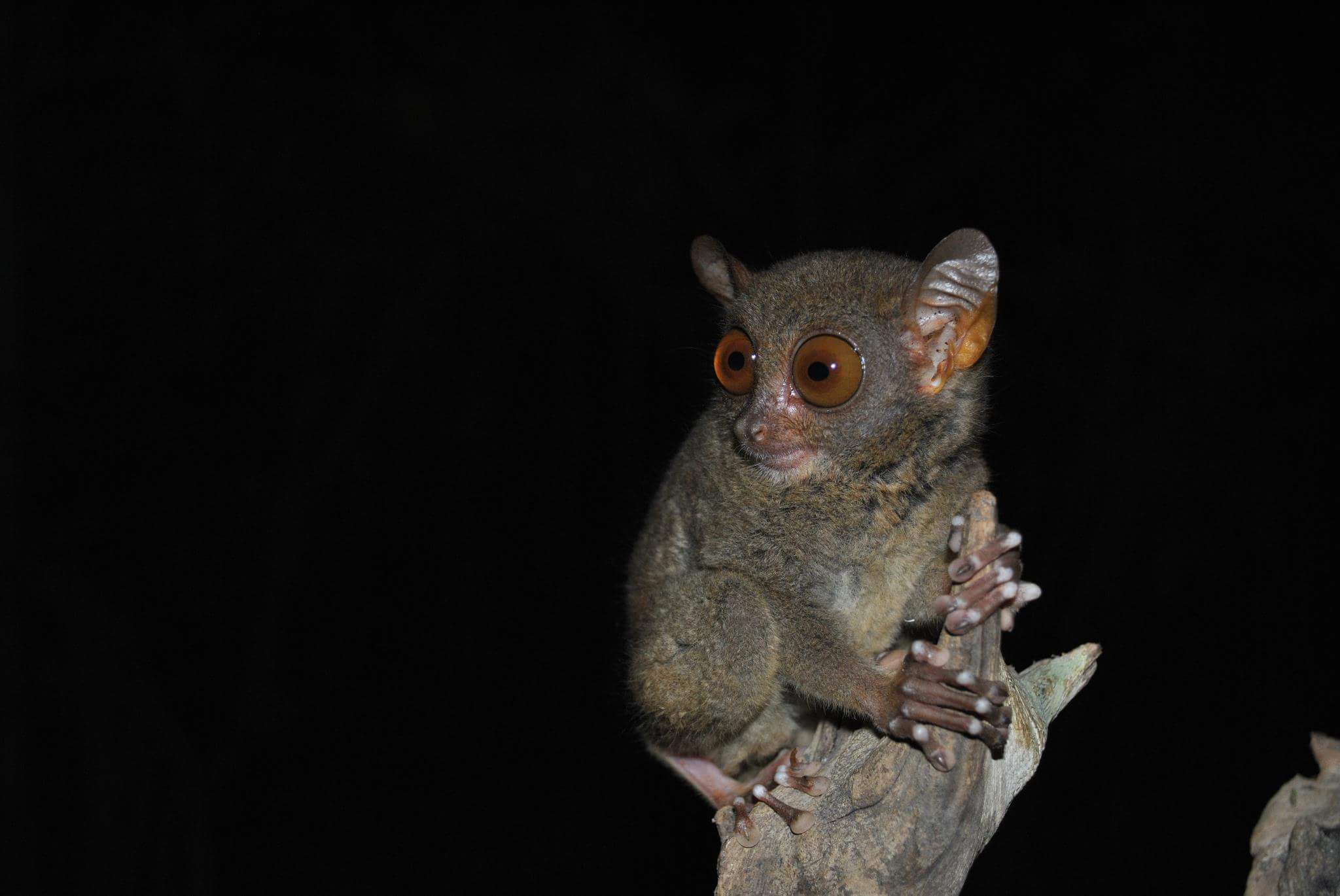A cuddly-looking creature with soft, grayish-fur; about 100 millimeters in height; with rat-like tail which is longer than the body and bat-like ears, the Tarsier (Locally called the maomag).
It thrives mostly in secondary dense forests with a diet of crickets, beetles, termites and other insects as well as small animals like lizards, frogs, and even small birds but has almost no natural enemies in the wild. Furthermore, this nocturnal creature has the unique ability of being able to turn its head 180 degrees as well as to jump backward with precision. Yet ironically, is listed as one of the country’s threatened species.
INTERESTING FACTS ABOUT TARSIERS:
- They are nocturnal animals and should not be disturbed at day time
- Their main diet is insects and should not be fed with meat
- They commit suicide during captivity due to trauma from touching and loud noise
- They’re one of the slowest fetal growth rates of any mammal, taking 6 months to reach a birth weight of 23 grams
- One eye is bigger than it’s brain
- They can turn their heads 180 degrees left, and 180 degrees right. Total of 360 degrees.
- Their ears move to the direction of sound.
- They have 1 baby per year. (2 baby per year is possible but seldom)
- The Philippine Tarsier is very territorial. One tarsier has a 1 hectare territory.
- In establishing territory, male tarsiers fight to the death.
- Male tarsier even practice infanticide where the male tarsier kils a baby tarsier in his territory if it’s his offspring.
- Tarsiers can jump 3-5 meters.
- In the day they are very sensitive to sound. Therefore silence is a must!
HABITAT:
- They are solitary and territorial animals
- A single tarsier needs at least a hectare of space per individual
- They don’t belong in a cage
- They thrive on secondary forest with thick undergrowth.
THREATS
- Habitat destruction
- Introduced house cats
- Hunting to display in tourist sites or sites with too much noise.
YOU CAN HELP PRESERVE THE TARSIERS BY:
- Not keeping tarsiers as pets
- Not buying captured tarsiers in the pet market
- Reporting cases of hunting, killing or smuggling of tarsiers; as a specially protected faunal specie(Proclamation 1030, such acts prohibited) to DOT.
- Not patronizing outlets displaying illegally-acquired tarsiers
- Supporting Philippine Tarsier Foundation, Inc.
